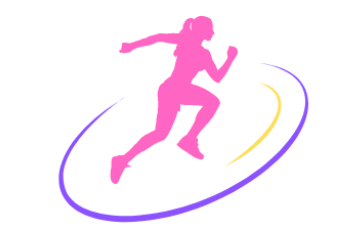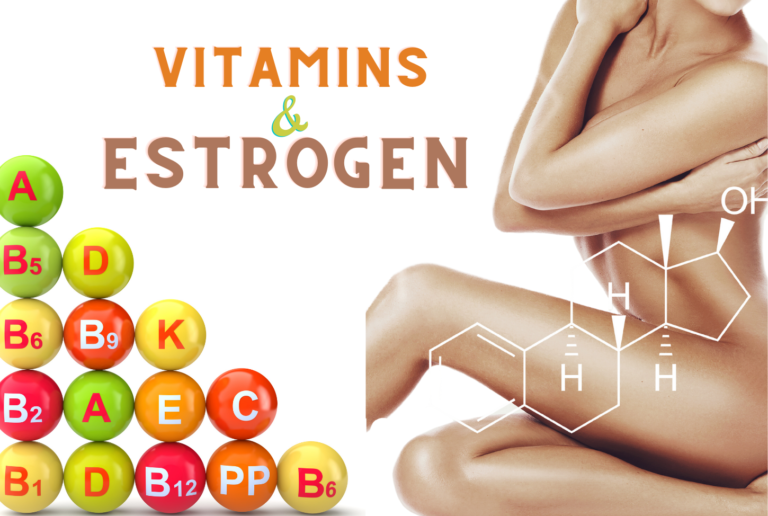Thriving In Your 40s: 21 Essential Diet Tips For Women Over 40
Welcome to your 40s, ladies! As you sail through perimenopause and menopause, your body undergoes significant changes, which could be a real pain in the butt. Fortunately, proper diet and nutrition can help ease the transition, giving you a better quality of life.
But let’s face it: following the “best diet” for women over 40 isn’t always easy. With conflicting advice on what to eat and what to avoid, it’s no wonder why some women feel lost and frustrated. But worry not, my dear surfer. In this article, we’re going to cut through the crap and give you the lowdown on how to eat like a champ in your 40s.
Nutrition strategies to ease menopause symptoms
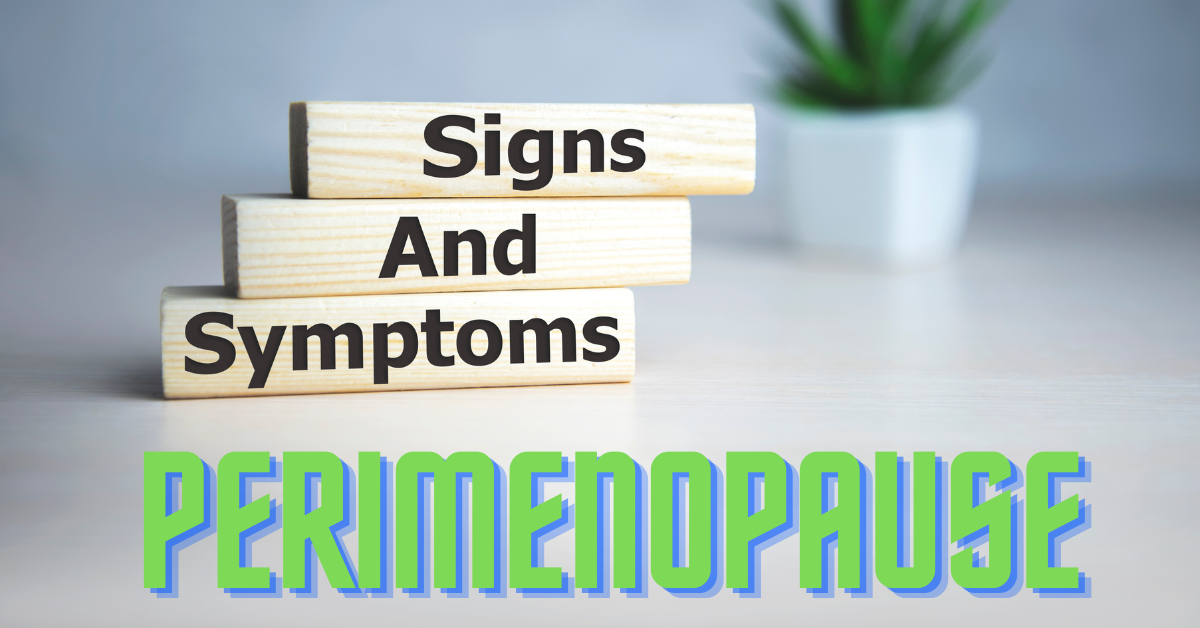
Menopause can be a challenging time for many women. Common symptoms include hot flashes, night sweats, mood changes, and weight gain. Certain foods and nutrients can help alleviate these symptoms. For example, phytoestrogens found in soy products can help ease hot flashes, while calcium and vitamin D can help prevent bone loss. Eating a diet rich in fruits, vegetables, whole grains, and lean protein can also help manage weight and improve overall women’s health.
Adjust Your Diet: the Metabolic Slowdown
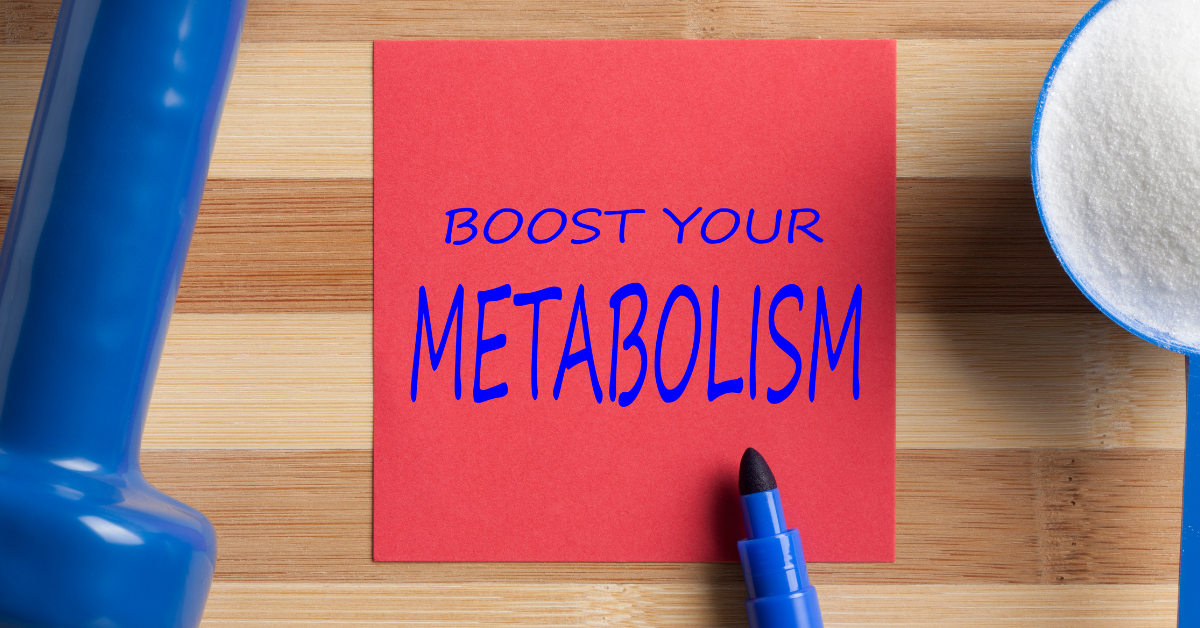
As you age, your metabolism slows down, which means your body burns fewer calories. To prevent weight gain, you may need to adjust your diet accordingly. Focus on reducing your overall calorie intake, while still getting all the nutrients you need.
Diet and Nutrition for Women over 40
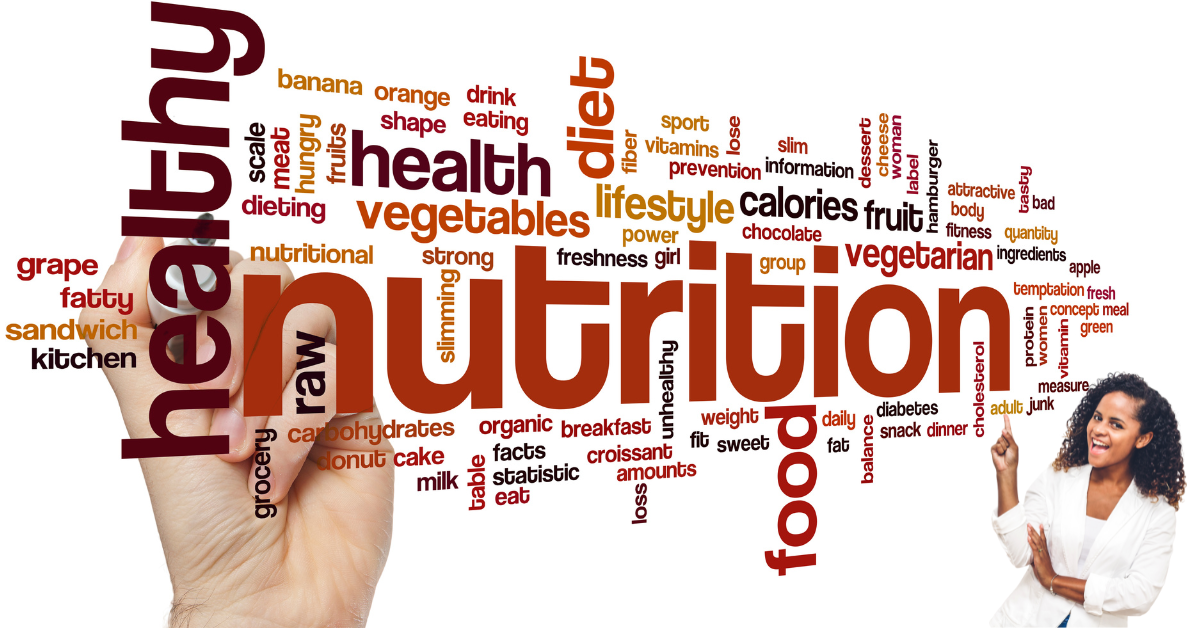
Diet and nutrition play a crucial role in maintaining health and well-being for women over 40. As women age, their bodies undergo significant changes, including hormonal shifts, a slower metabolism, and an increased risk of osteoporosis, high blood pressure, cancer, and other health issues. To stay healthy and address these concerns, it’s essential to prioritize nutrient-dense foods, focusing on key nutrients like calcium, iron, and vitamin D, while maintaining a balanced diet rich in lean proteins, complex carbohydrates, heart-healthy fats, and plenty of fruits and vegetables. By adopting healthy eating habits and staying active, women over forty can support their overall health and thrive in this vibrant stage of life.
Combine Carbohydrates AND Protein
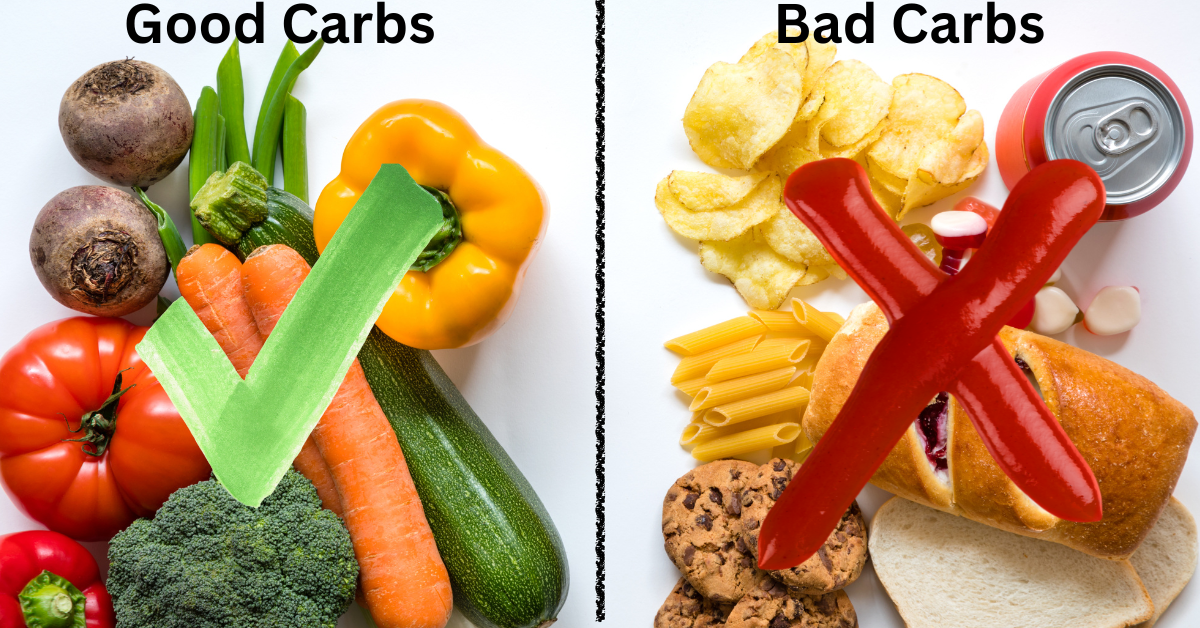
You’ve probably heard that carbohydrates are the devil’s food and that protein is the holy grail of weight loss. Well, not exactly. Your body needs both macronutrients to function properly. Carbs give you energy, while protein helps you build and repair tissues. Combining the two also slows down the absorption of carbohydrates, preventing spikes in blood sugar levels.
Focus On Vegetables To Lose Weight, Prevent Muscle Loss, And Build Muscle Mass
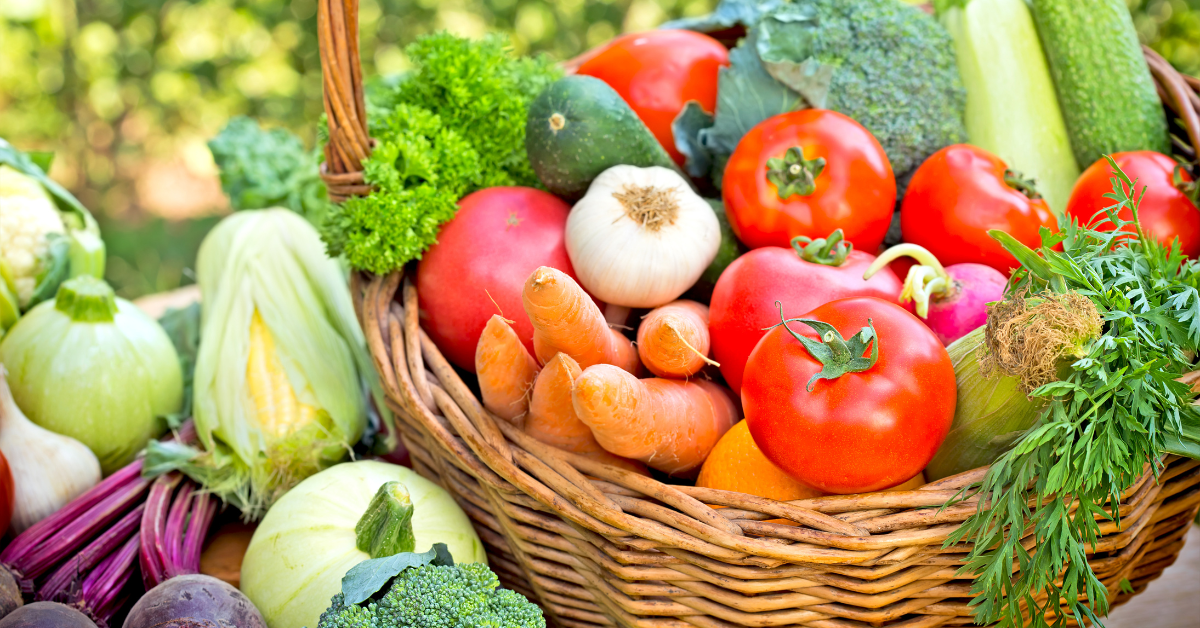
Vegetables are your best friends when it comes to weight loss and muscle maintenance. They’re low in calories and high in fiber, which means they keep you full for longer periods. They also contain essential vitamins and minerals that support bone and joint health.
Introduce More Protein Into Your Diet
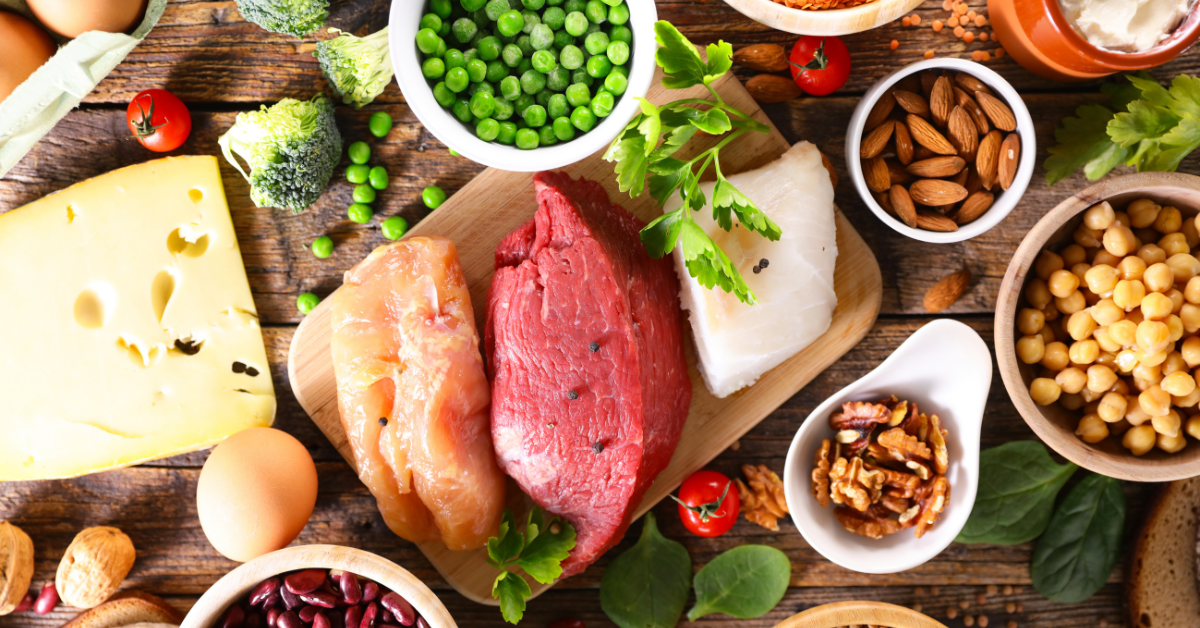
Protein is essential for building and maintaining muscle mass, which becomes even more important in your 40s. In addition to building muscle, protein can help keep you feeling full and satisfied throughout the day, which can aid in weight management.
Here’s a list of lean protein sources that middle-aged women can include in their diet:
Chicken breast (skinless)
Turkey breast (skinless)
Fish, such as salmon, tuna, cod, and halibut
Shrimp and other shellfish
Tofu and tempeh (soy-based products)
Legumes, such as lentils, chickpeas, and black beans
Low-fat Greek yogurt
Cottage cheese
Eggs (particularly egg whites)
Quinoa
Edamame (young soybeans)
Seitan (wheat protein)
Lean cuts of beef, such as sirloin, tenderloin, or flank steak
Lean cuts of pork, like pork tenderloin or loin chops
Bison (a leaner red meat alternative)
Protein powder (whey, pea, or brown rice-based)
Remember to choose a variety of protein sources to ensure you’re getting a range of nutrients and to keep your meals interesting and flavorful.
Focus on whole foods
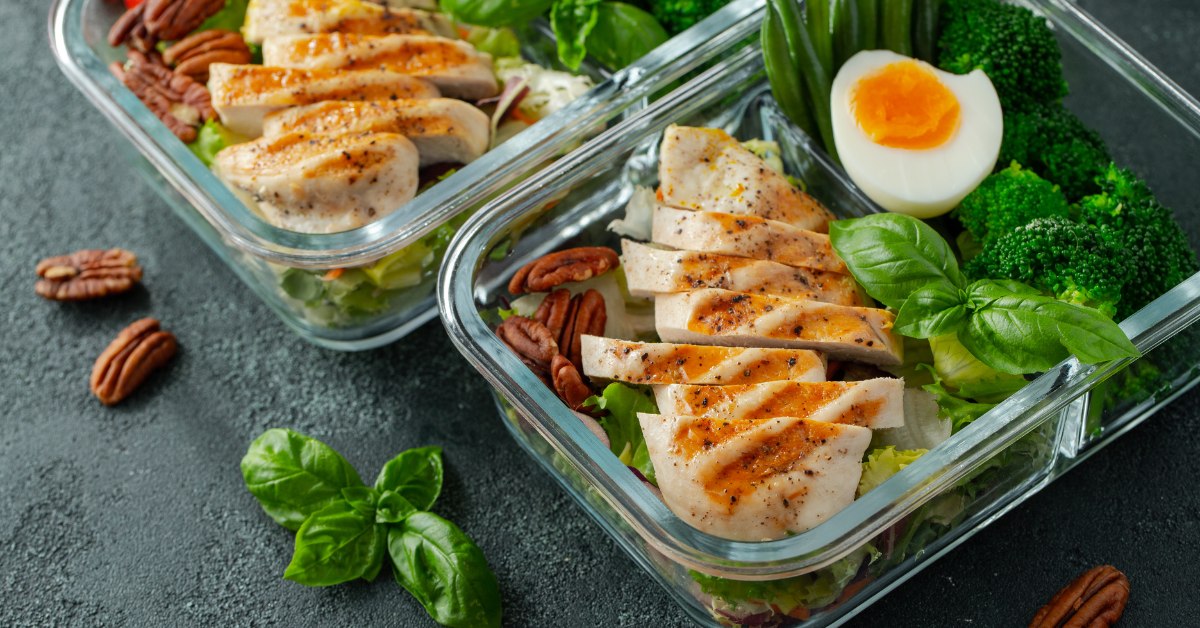
Whole foods are foods that are minimally processed and contain no additives or preservatives. They’re nutrient-dense and provide your body with the fuel it needs to function optimally. Making them a cornerstone of a healthy diet.
Here’s a list of some whole foods from various food categories:
Fruits: Apples, bananas, berries, oranges, grapes, cherries, peaches, pears, plums, melons
Vegetables: Carrots, broccoli, spinach, kale, tomatoes, bell peppers, zucchini, cauliflower, peas, Brussels sprouts
Whole grains: Brown rice, quinoa, barley, oats, whole wheat, bulgur, millet, farro, amaranth
Legumes: Lentils, black beans, chickpeas, kidney beans, pinto beans, navy beans, green peas
Nuts and seeds: Almonds, walnuts, cashews, chia seeds, flaxseeds, pumpkin seeds, sunflower seeds
Fish and seafood: Salmon, tuna, sardines, mackerel, shrimp, oysters, clams, crab
Lean meats: Chicken, turkey, lean cuts of beef (sirloin, tenderloin), pork tenderloin
Dairy products: Plain Greek yogurt, cottage cheese, natural cheeses, unflavored milk
Eggs
Healthy fats: Avocado, extra virgin olive oil, canola oil, flaxseed oil
Vitamin D
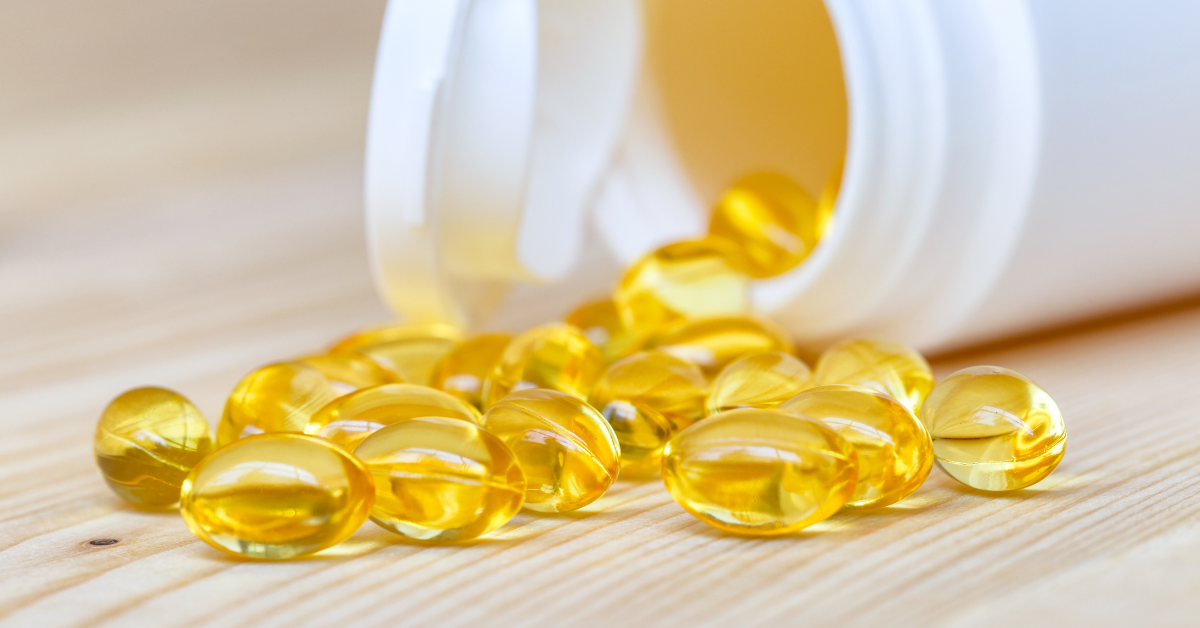
Vitamin D is essential for bone health, which becomes a concern as you age. Sun exposure is the best way to get vitamin D, but it’s not always practical. Consider taking a supplement if you live in an area with limited sunlight.
Get enough calcium and vitamin D
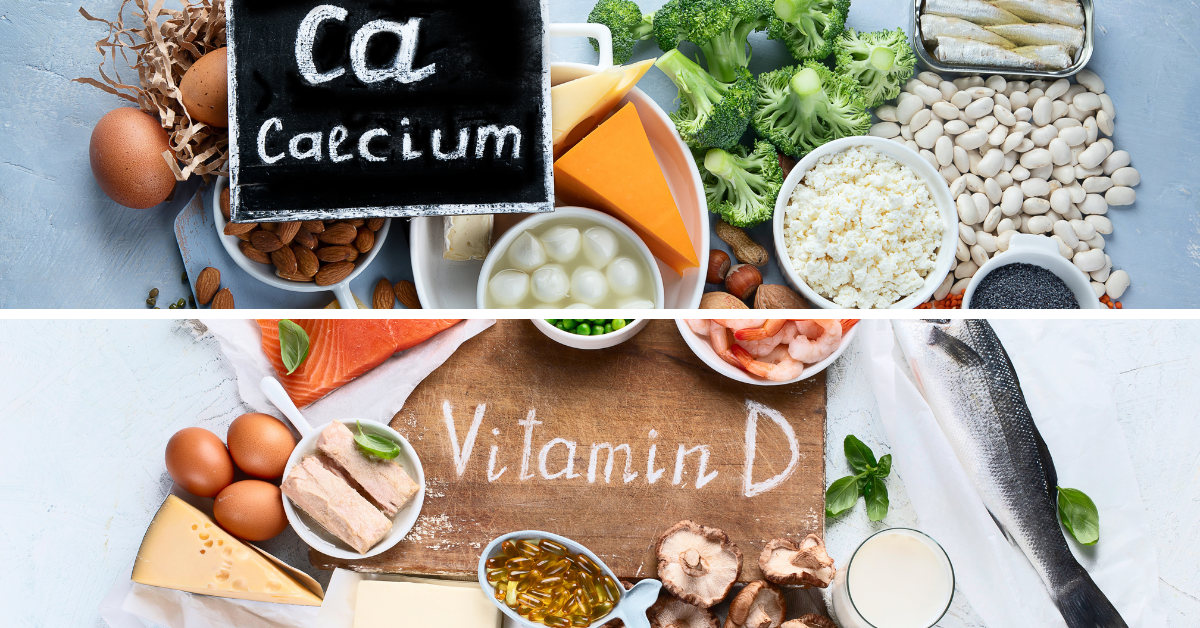
As mentioned earlier, calcium is crucial for both bone health and heart health too. Aim for at least 1,200 milligrams per day through food or supplements. Vitamin D helps your body absorb calcium, so make sure you get enough of both nutrients.
This is a list of calcium-rich foods a Woman over 40 should include in her diet
Dairy products (milk, yogurt, cheese)
Leafy green vegetables (kale, spinach, collard greens)
Broccoli
Almonds
Chia seeds
Tofu
Fortified cereals
Canned sardines and salmon (with bones)
Edamame
Calcium-fortified plant-based milk (almond, soy, or oat milk)
Smart Goals for Over- 40 Weight Loss Journey

Embarking on a weight loss journey for middle-aged women can be a transformative and empowering experience and yet overwhelming, therefore, setting realistic goals is essential for your weight loss plan to success. Here are some tips for setting smart and healthy weight loss goals:
Make them specific. For example, instead of saying “I want to lose weight,” say “I want to lose 10 pounds in 3 months.”
Make them measurable. Use a scale or measuring tape to track your progress.
Make them attainable. Set goals that are challenging but achievable.
Make them relevant. Choose goals that are relevant to your health and well-being.
Make them time-bound. Give yourself a deadline to achieve your goals.
Why Is Following The Best Diet Plan So Important For Women In Their 40s?
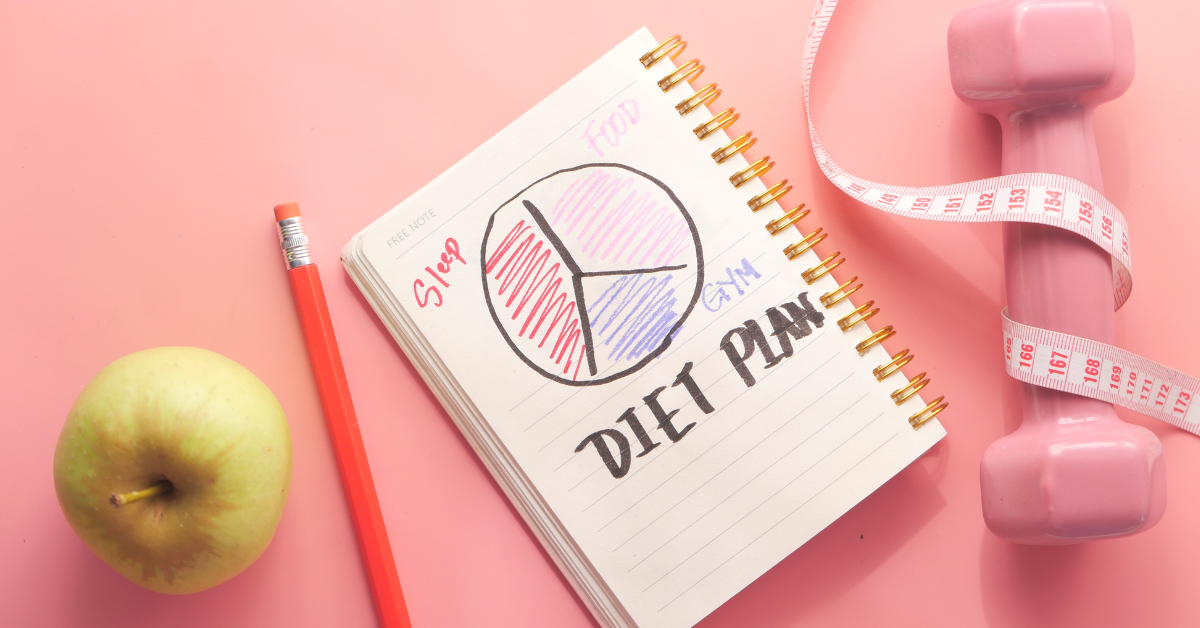
Eating healthy food and a well-balanced diet in your 40s can prevent or manage chronic diseases such as heart disease, type 2 diabetes, and cancer. It can also boost your immune system, which becomes weaker as you age. In short, a healthy diet is the foundation of a healthy life.
10 Suggestions To Plan The Best Diet For Women Over 40
Planning a healthy weight loss diet plan that works for you doesn’t have to be complicated. Here are some tips to get you started:
Prioritize key nutrients: Ensure your diet includes adequate calcium, iron, vitamin D, fiber, and omega-3 fatty acids to support your changing body.
Embrace variety: Consume a diverse range of fruits, vegetables, whole grains, and lean proteins, to provide a wide array of nutrients.
Focus on lean protein sources: Incorporate chicken, turkey, fish, tofu, legumes, and low-fat dairy products to maintain muscle mass and support overall health.
Choose complex carbohydrates: Opt for whole grains, fruits, and vegetables to provide sustained energy, promote satiety, and regulate blood sugar levels.
Include heart-Friendly fats: Consume avocados, olive oil, nuts, seeds, and fatty fish for cardiovascular health and hormone production.
Stay hydrated: Drink at least eight 8-ounce glasses of water per day to support digestion, temperature regulation, and nutrient transport.
Practice portion control: Be mindful of serving sizes to prevent overeating, using the “plate method” as a guide for balanced meals.
Listen to your body: Adjust your diet to accommodate any food sensitivities or personal preferences, ensuring your nutritional needs are met.
Plan meals and snacks: Create a weekly meal plan that incorporates balanced, nutrient-dense options, and prepare ingredients in advance to save time and promote healthy choices.
Seek support: Share your goals with friends, family, or a support group to stay motivated, accountable, and encouraged throughout your journey to better nutrition.
Don’t forget to treat yourself occasionally. A small indulgence can go a long way in maintaining a healthy relationship with food
Embrace Heart Healthy Fats
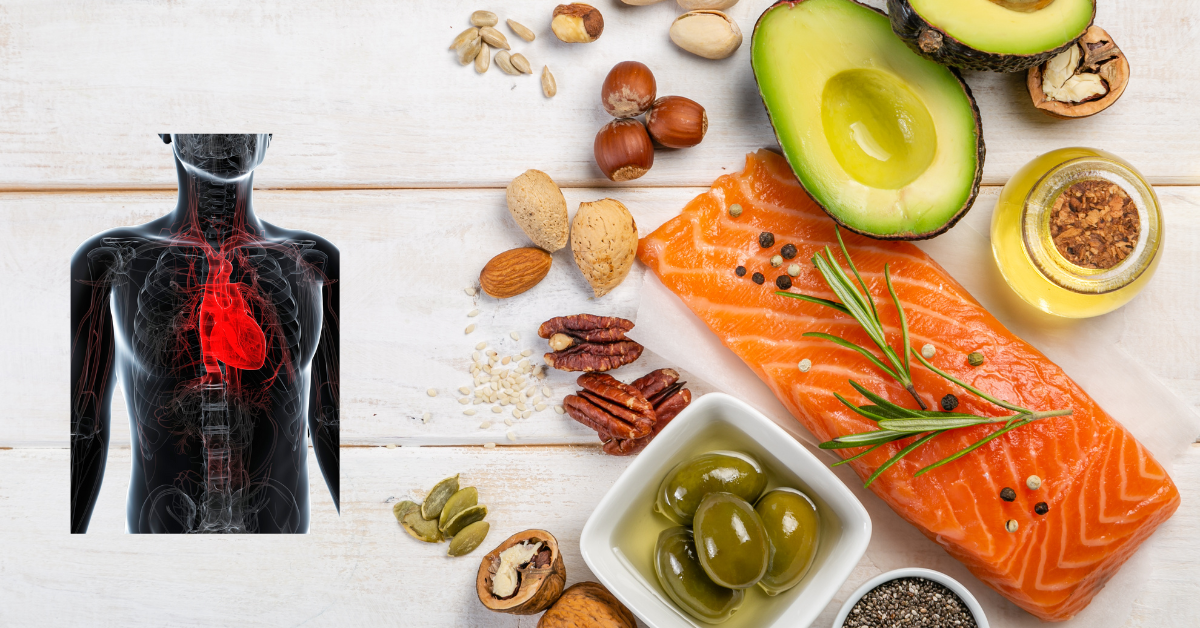
Fat isn’t the enemy, but not all fats are created equal. Focus on incorporating healthy fats into your diet, such as those found in olive oil, nuts, seeds, and fatty fish. These fats can help lower your risk of heart disease and stroke.
Here’s a list of heart-friendly fats that Perimenopausal women should incorporate into their diet:
Avocados: Rich in monounsaturated fats, potassium, and fiber
Olive oil: A good source of monounsaturated fats and antioxidants
Nuts: Almonds, walnuts, pistachios, and cashews are high in fiber, and various nutrients
Seeds: Chia seeds, flaxseeds, and pumpkin seeds contains essential nutrients
Fatty fish: Salmon, mackerel, sardines, and herring are rich in omega-3 fatty acids, which support heart health
Dark chocolate: Contains heart-healthy flavonoids and is a source of monounsaturated fats (choose varieties with at least 70% cocoa content)
Nut butters: Almond, peanut, and cashew butter provides protein, and fiber (opt for natural, unsweetened varieties)
Flaxseed oil: A plant-based source of omega-3 fatty acids
Canola oil: High in monounsaturated fats and a good source of omega-3 fatty acids
Hemp seeds: A plant-based source of omega-3 and omega-6 fatty acids
Tofu and tempeh: Soy-based products that contain plant-based protein
Eggs: Contain essential nutrients including omega-3 fatty acids (particularly in omega-3 enriched eggs)
Incorporate these Good for your heart fats into your diet to support cardiovascular health, hormone production, and nutrient absorption. Remember to consume them in moderation, as fats are calorie-dense, and excessive calorie intake may lead to weight gain.
Support Nutrition with Exercise

Eating a healthy diet is essential, but it’s not enough on its own. Exercise is also crucial for maintaining good health. Aim for at least 150 minutes of moderate-intensity aerobic exercise or 75 minutes of vigorous-intensity aerobic exercise per week. Strength training is also important for building and maintaining muscle mass.
Eat More Fiber-Rich Foods
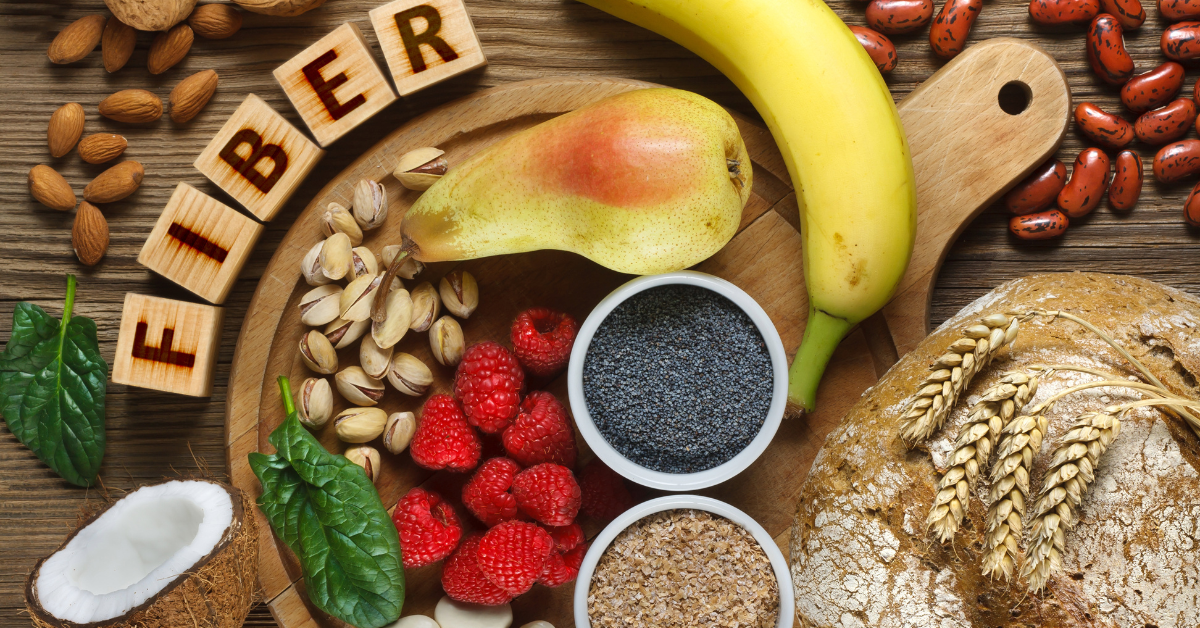
Fiber is an important nutrient that helps regulate digestion, lower cholesterol levels, and maintain blood sugar levels. Good sources of fiber include whole grains, fruits, vegetables, nuts, and seeds.
Vitamin B-12 Will Support Optimal Brain Health
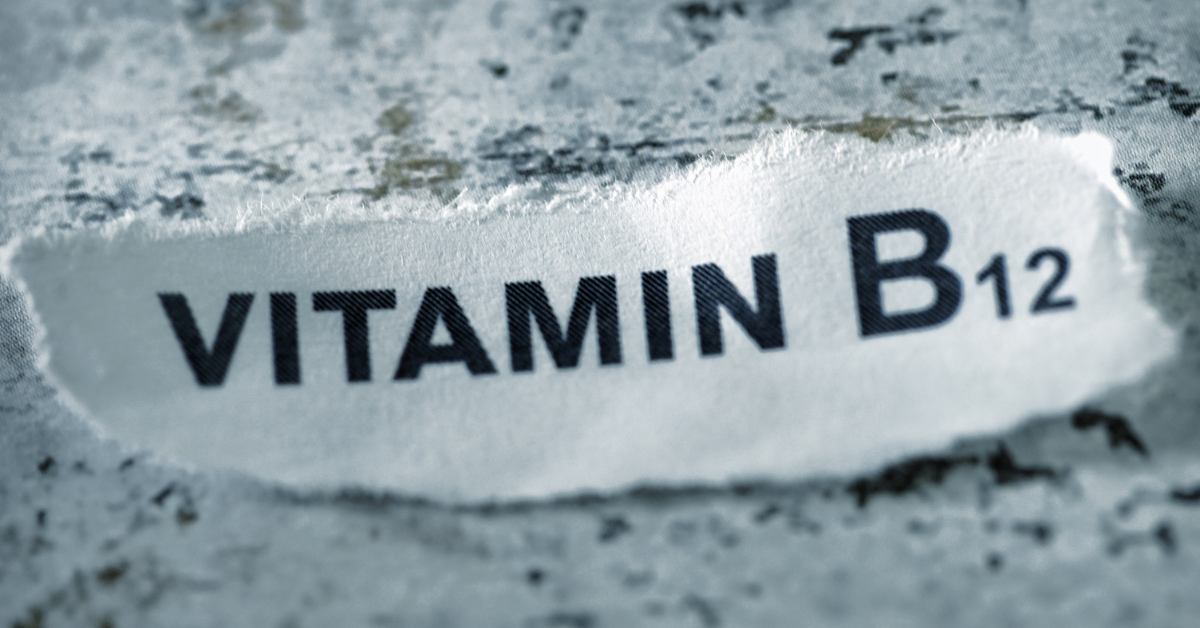
Vitamin B-12 is essential for cognitive function and the production of red blood cells. As you age, your body’s ability to absorb vitamin B-12 decreases. Therefore, it’s important to ensure you’re getting enough of this nutrient through diet or supplements. Good sources of vitamin B-12 include meat, fish, eggs soy milk, and dairy products.
Your Gut Health Must Take Precedence
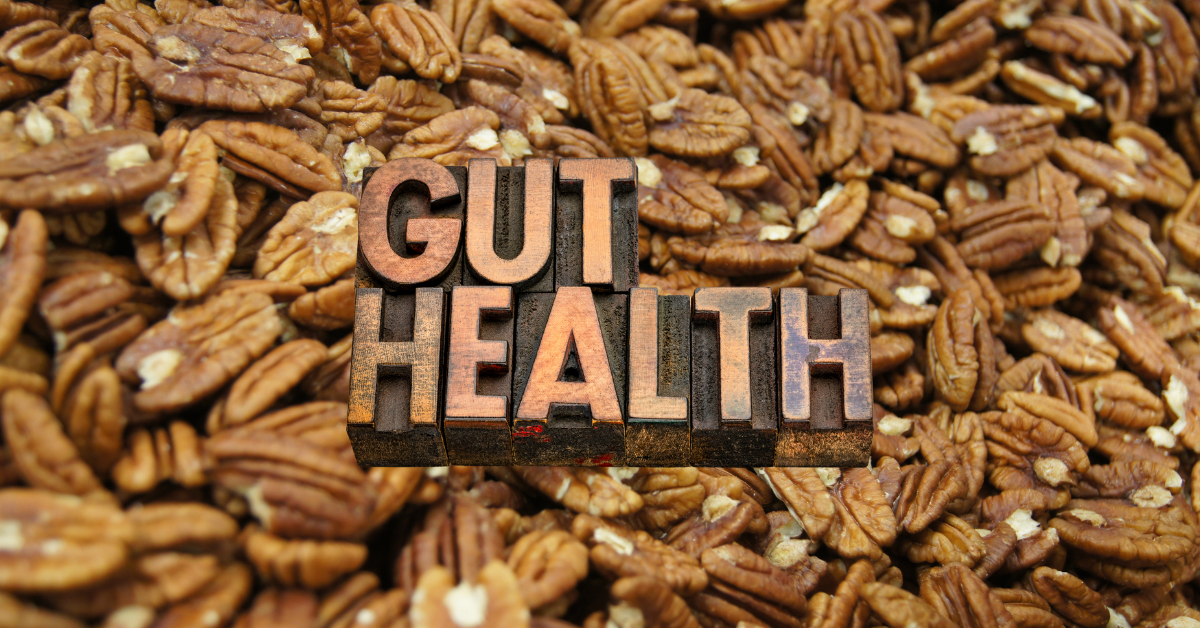
Your gut health plays a crucial role in your overall health and well-being. It affects your digestion, immune system, and even your mental health. To support your digestive health, eat a variety of foods that are rich in prebiotics and probiotics. Examples include yogurt, kefir, kimchi, sauerkraut, and whole grains.
Say Goodbye To Processed Foods
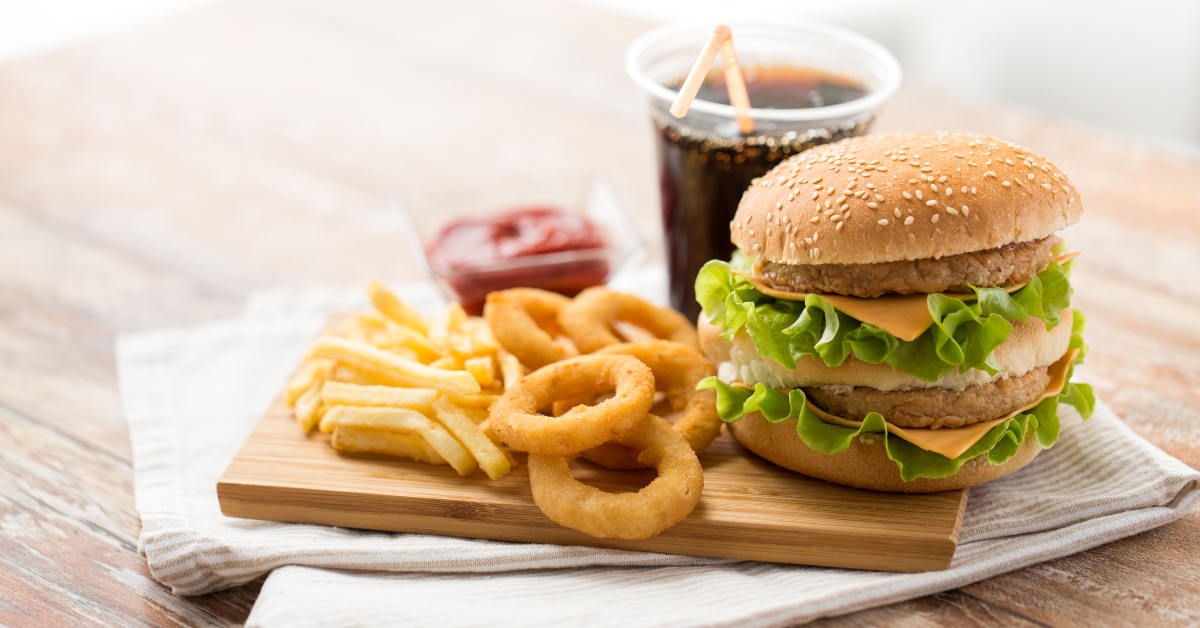
Processed foods are often high in salt, sugar, and unhealthy fats. They’re also low in vital nutrients and can contribute to weight gain and chronic diseases. Aim to eat whole, unprocessed foods as much as possible.
Introduce Anti-Inflammatory Foods To Encourage Healthy Joints
As you age, your joints may become stiff and painful. Eating a diet rich in anti-inflammatory foods can help alleviate joint pain and improve mobility. Good sources of anti-inflammatory foods include fatty fish, nuts, seeds, whole grains, and colorful fruits and vegetables.
Combine Healthy, Mindful Eating With A Workout Regimen

Healthy eating and exercise go hand in hand when it comes to overall health and well-being. A workout routine that combines cardio and strength training can help you maintain muscle mass, improve bone density, and manage weight. Coupled with mindful eating habits and dietary supplements, you can thrive in your 40s and beyond.
What should women 40+ eat to lose weight?
Weight loss can be challenging at any age, but it becomes even more so in your 40s. To lose weight, you need to create a calorie deficit, which means consuming fewer calories than you burn. Focus on eating a diet rich in whole foods, lean protein, and fiber to keep you full and satisfied. Avoid sugary drinks and processed foods, which can add unnecessary calories to your diet.
Remember nutrition isn’t everything

While nutrition is important, it’s not the only factor that affects your long term health, and well-being. Other factors such as stress, sleep, and social support also play a crucial role long term health. Make sure you’re taking care of your body and mind in all aspects to thrive in your 40s.
Flexibility Training

As you age, your muscles and joints become stiffer, making it difficult to perform everyday activities. Flexibility training can help improve your range of motion and prevent injuries.
Here is a list of flexible and gentle exercises that can be incorporated into your daily life
Yoga
Pilates
Tai Chi
Walking
Swimming
Water aerobics
Stretching exercises
Resistance training
Cycling
Dance fitness classes
Remember to consult with a healthcare professional before starting any new exercise routine, and listen to your body to avoid overexertion or injury. Gradually increase the intensity and duration of your workouts as your fitness level improves
Reboot Your Confidence

Being in your 40s is a milestone. It’s a time when you look back at all the things you’ve accomplished and set new goals for the future. It’s also a time when you may feel less confident about your appearance and health. But guess what? You’re still a badass, and you can still rock that bikini. Focus on your strengths and don’t let anyone dim your light.
Frequently Asked Questions

Is weight loss harder for women in their 40s?
Yes, weight loss can be more challenging in your 40s due to hormonal changes, muscle loss, and a slower metabolism. However, it’s still possible to lose weight with the right diet and exercise plan. Focus on making healthy lifestyle changes that you can sustain long-term.
Have I waited too long to get in shape now that I’m in my 40s?
No, it’s never too late to get in shape. Starting an exercise program and eating a healthy diet can improve your health and well-being at any age. Talk to your doctor before starting any new exercise program to ensure it’s safe for you.
How can I speed up my metabolism after 40?
While your metabolism naturally slows down with age, there are some things you can do to give it a boost. Eating more protein-rich foods, drinking green tea, and strength training can all help increase your metabolism.
How can I lose weight during perimenopause?
Losing weight during perimenopause can be challenging, but not impossible. Focus on losing weight by eating a healthy diet and exercising regularly. Talk to your doctor about hormone therapy or other treatments that may help alleviate symptoms and support weight loss.
How can a 47-year-old lose belly fat?
Belly fat is a common concern for many women in their 40s. To lose belly fat, you need to create a calorie deficit through diet and exercise. Focus on eating a diet rich in whole foods and lean protein, and incorporate both cardio and strength training into your exercise routine.
What fruit stops weight gain?
No single fruit can stop weight gain, but incorporating a variety of fruits into your diet
can help you stay full and satisfied while providing important nutrients. Some fruits that are particularly nutrient-dense include berries, apples, oranges, and bananas.
In conclusion, maintaining a healthy diet and lifestyle is essential for women over 40 to thrive in their physical, mental, and emotional well-being. By incorporating these essential diet tips into your daily routine, you can improve your overall health, manage your weight, and feel your best at any age. Remember to consult with your doctor before making any significant changes to your diet or exercise routine, and don’t forget to enjoy the occasional indulgence in moderation.
